News
“The Silent Struggles of Deaf Pregnant Women Accessing Healthcare in Ghana”
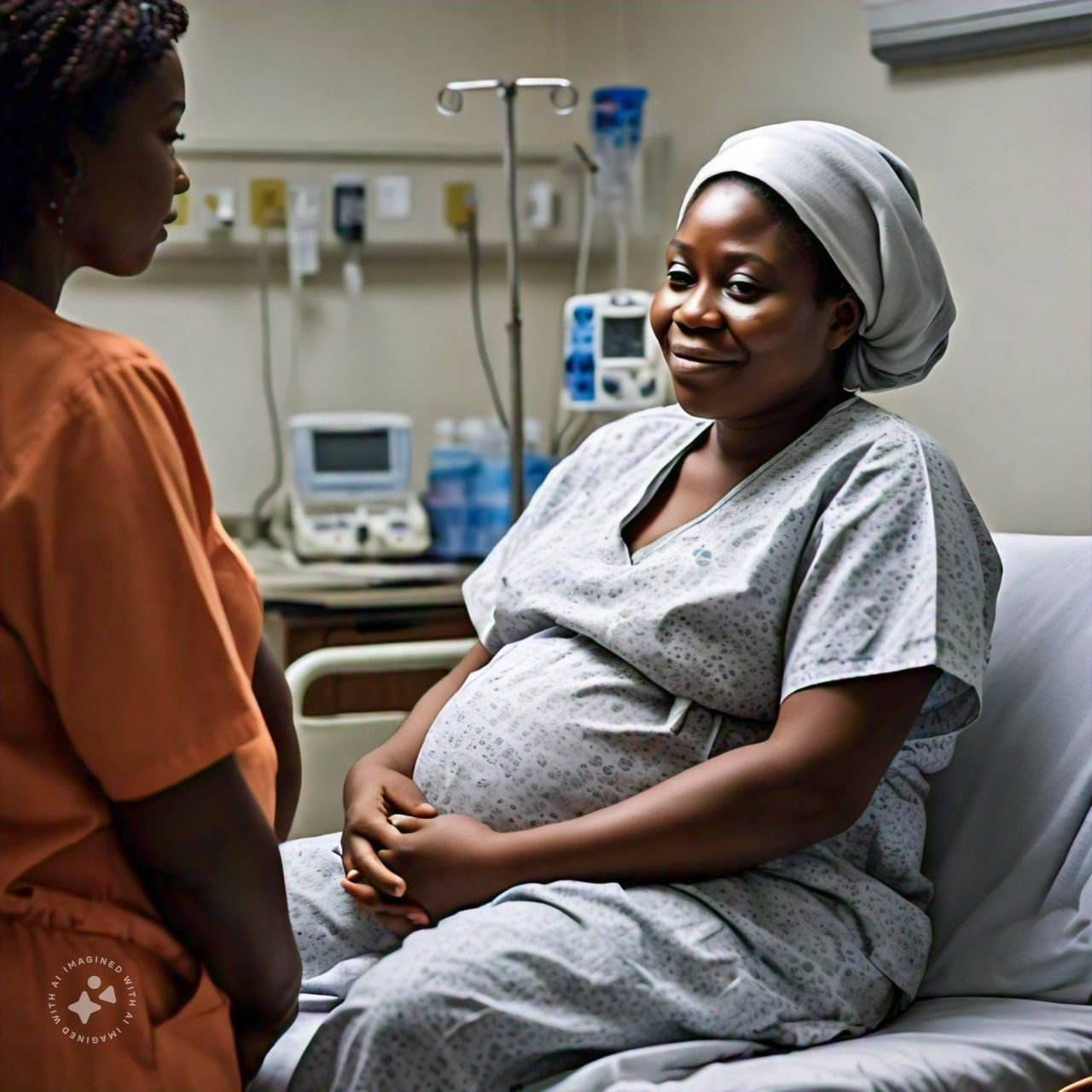
A baby’s first cry needs no translation, no interpreter, and no explanation. Yet, for deaf mothers, their own cries for help and understanding echo silently through Ghana’s healthcare system.
In crowded waiting rooms, they watch other mothers freely communicate with healthcare providers, sharing joys and concerns about their growing babies. Yet, their own questions go unheard.
When doctors speak, they catch only silence. When nurses give vital instructions, the words vanish unseen. For them, the journey to motherhood isn’t just about bringing new life into the world – it’s about being understood in a system that speaks a language their hands know but their doctors don’t.
Twenty-six-year-old Bilkisu, a soyabean seller from Gyangyanadze in the Efutu Municipal District of Ghana’s Central Region, is currently pregnant with her second child.
However, the harrowing experience of her first pregnancy still lingers in her mind. From being sidelined during early antenatal visits due to communication barriers to receiving incorrect prescriptions that nearly caused her to miscarry, to enduring labour for nearly six hours, the trauma still brings tears to her eyes.
“On the day of delivery, I got to the hospital around 6:00 pm, but it was midnight before I could deliver my baby. Even then, it took my mother’s intervention to force the nurses to attend to me. The stigma and discrimination, even at the point of care, are terrible,” said the four-months-pregnant woman, who is also married to a hearing-impaired husband.
In contrast, Cynthia Addo, now in her third trimester with her third child, represents a rare success story. As a teacher at the Tetteh Ocloo State School for the Deaf, she has benefited from support systems that many deaf women lack.
“Fortunately for me, my parents are speakers, and whenever I go for a check-up, they ensure I have a family member or friend who works in the hospital to assist me. In all my pregnancies, I’ve never had to change doctors or nurses. I have one team throughout, and whenever I need to visit the hospital, I ensure they are around. But what about the many others who are not as privileged as I am?,” she expressed with concern.
The stories of Bilkisu and Cynthia highlight a broader crisis. Ghana’s estimated 200,000 hearing-impaired individuals form part of the two million Persons with Disability (PWD) population, representing 8% of the nation’s populace.
For deaf pregnant women, the lack of sign language interpreters, inaccessible medical equipment, and insufficient training for healthcare professionals to provide specialised care creates dangerous gaps in maternal healthcare services.
In 2006, Ghana made history as one of Africa’s first countries to pass a Persons with Disability Act (Act 715). This law promised rights to accessibility, employment, and education. By 2012, the country ratified the United Nations Convention on the Rights of Persons with Disabilities (CRPD), committing to healthcare without discrimination.
As a United Nations Member State, Ghana pledged to achieve universal health coverage (UHC) by leaving no one behind and ensuring access to quality health services without financial hardship by 2030, under Sustainable Development Goal 3.
Yet, despite these commitments, the reality remains stark. Several studies on the rights and dignity of PWDs in Ghana reveal disparities, including physical, attitudinal, and financial barriers to healthcare access.
In maternal healthcare, barriers such as inaccessibility, communication challenges, and lack of tailored support services for deaf pregnant women contribute to Ghana’s maternal mortality ratio (MMR) of 319 per 100,000 live births – far above the WHO’s target of 70 per 100,000 live births by 2030.
Mabel Adjei Mintaah, General Secretary of the Ghana National Association of the Deaf (GNAD), confirms reports of many hearing-impaired pregnant women avoiding healthcare facilities and delivering at home due to the attitudinal and communication barriers of healthcare workers.
“There are health workers who make derogatory comments about why a disabled person should have sex and be pregnant in the first place. But deaf people, especially women, have the right to reproductive health and to making families like all other persons,” she emphasised.
Ms Mintaah called for enforcing policies to ensure that all healthcare facilities have at least one sign language interpreter to assist deaf individuals. This, she stressed, is a critical step toward bridging existing gaps and saving lives.
David Awusi, Executive Director of Youth Rise International (YORI), a civil society organisation promoting health equity, expressed concern over the neglect of basic sign language training in medical institutions.
“Additionally, there are no national standard operating guidelines for disability care in the healthcare system. These issues must be urgently addressed to uphold the health rights of PWDs, especially pregnant women and adolescents, and ensure they are treated with dignity,” he urged.
Juventus Duorinaah, Ghana’s first hearing-impaired lawyer and a human rights activist, attributed stigma, discrimination, and marginalisation to the call for amending the PWDs Act of 2006.
“Deaf people and PWDs face numerous stereotypes and discrimination. We urge Parliament to expedite action on the revised bill to ensure it becomes more relevant and responsive to the current needs of PWDs in Ghana,” he stated.
The Programme Coordinator for Disability Inclusion and Healthcare Delivery at the Ghana Health Service (GHS), Patience Ofosuhemaa, explained that Ghana is drafting its first policy on disability inclusion in healthcare delivery. This policy aims to address the gaps faced by PWDs and is expected to be operational by the end of the first quarter next year.
The policy will include training service providers in disability care, creating disability desks at healthcare facilities, appointing at least one sign language interpreter at the district level, and addressing physical infrastructure inaccessibility progressively.
“The GHS initially considered all Ghanaians as one in healthcare delivery. However, a 2022 baseline survey revealed knowledge gaps among health staff, barriers in information dissemination, and issues with physical accessibility. These findings underscore the need for inclusive healthcare,” she said.
With 8.8% of females in Ghana suffering from disability conditions compared to 6.7% of males, Ms Ofosuhemaa stressed the urgent need to bridge existing inequities in healthcare access.
As Bilkisu poignantly remarked, “I just want to be treated with dignity and respect. I want to understand what’s happening to my body and my baby.”
This reporting was completed with the support of the Centre for Journalism Innovation and Development (CJID) in partnership with the Institute for War and Peace Reporting.
BY ABIGAIL ANNOH
News
Oguaa goes gay with Fetu Afahye
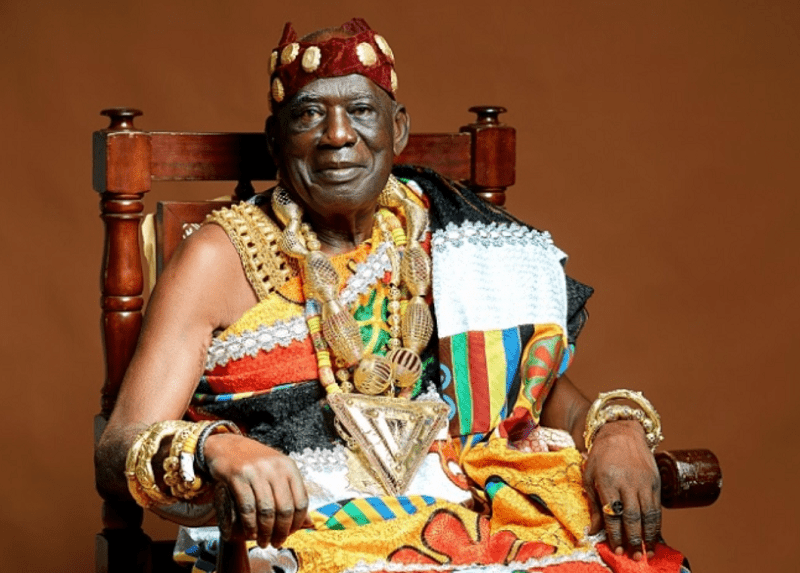
The ancient city of Cape Coast, one of Ghana’s historical cities, witnessed a showcase of the rich cultural heritage of the Oguaa people with an exciting, colourful, and traditional event to mark the celebration of the 61st annual Fetu Afahye.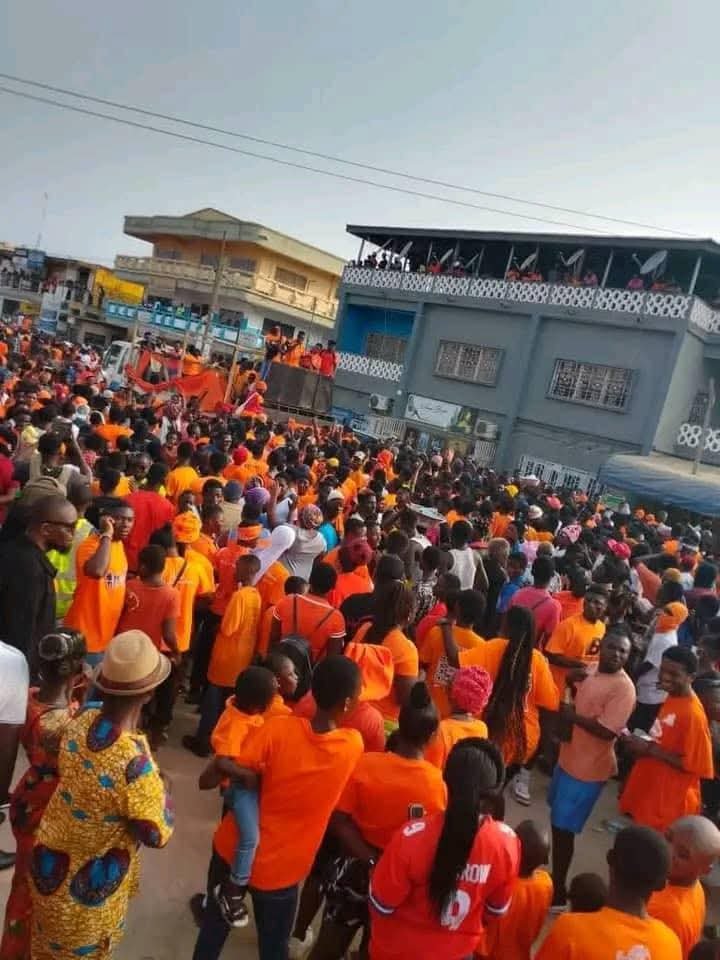
Themed “Innovate to elevate: Harnessing the creative economy for sustainable growth”, the festival featured a vibrant lineup of events, interspersed with several cultural performances showcasing the traditions which depict the traditional, historical and ancestral heritage of the land.
It witnessed a colourful procession of chiefs and various Asafo companies from the Mfantsipim School junction through the principal streets of the town to the Jubilee Park, accompanied by drumming and traditional dances.
The chiefs and members of the asafo companies were adorned in regal attire symbolising the pride and unity of the community.
Fetu Afahye demonstrates Oguaa’s resilience, unity, and cultural pride as the town welcomed indigenes both within and outside, as well as people from far and near, desirous of participating in the festival.
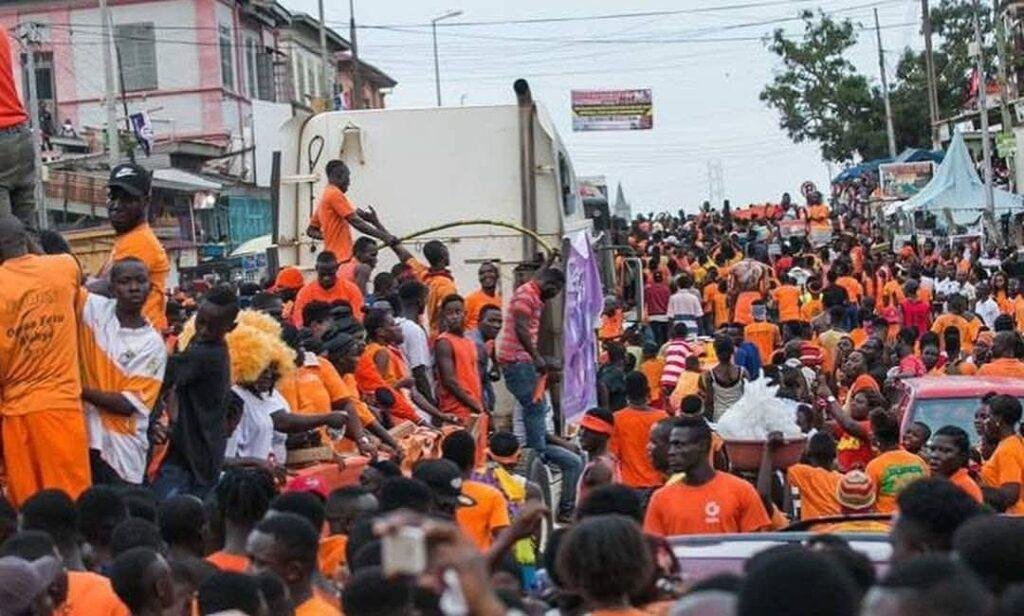
Various public spaces, including eateries and pubs, attracted patrons, and streets within the town witnessed bustling events with music blaring from the loudspeakers that had been placed by the roadside.
Bakatue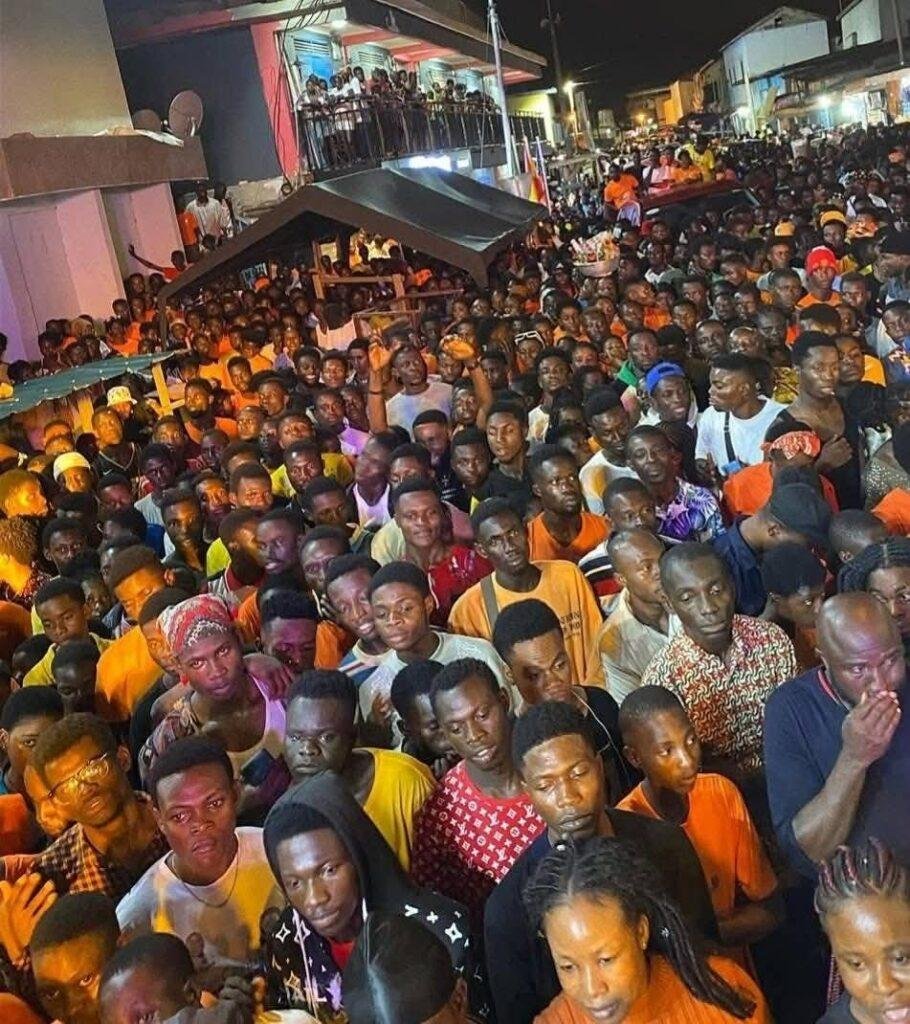
Prior to the durbar was the Bakatue regatta, a canoe race on the Fosu Lagoon, organised by ATL, a campus-based radio station located within the University of Cape Coast (UCC) in collaboration with the Oguaa Traditional Council.
The event saw a thrilling spectacle as the three Asafo companies, Nkum No. 4, Bentsir No. 1, and Anaafo No. 2, battled aggressively on the Fosu Lagoon. Nkum No. 4 earned nine points to clinch the trophy, medals, and a cash prize. They were followed by Anaafo No. 2 with five points, while Bentsir No. 1 finished third with four points.
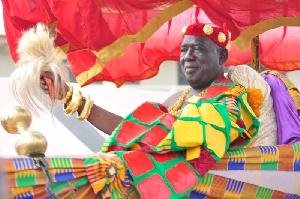
Orange Friday
Friday witnessed what has come to be known as the biggest street carnival in Ghana, known as ‘Orange Friday.’
It drew hundreds of people across the country. Clad in orange attires, the patrons gathered and moved through the streets of the town, creating a gridlock.
The Paramount Chief of the Oguaa Traditional Area, Osaberimba Kwesi Atta II, at the durbar of chiefs to climax the festival acknowledged the unifying factor in relation to culture among Africans and stated the need for Africans to take their destinies into their own hands.
He explained that festivals such as Fetu Afahye offer an opportunity for Africans to remind themselves of the future by working hard and embrace the future in order not to be taken by events.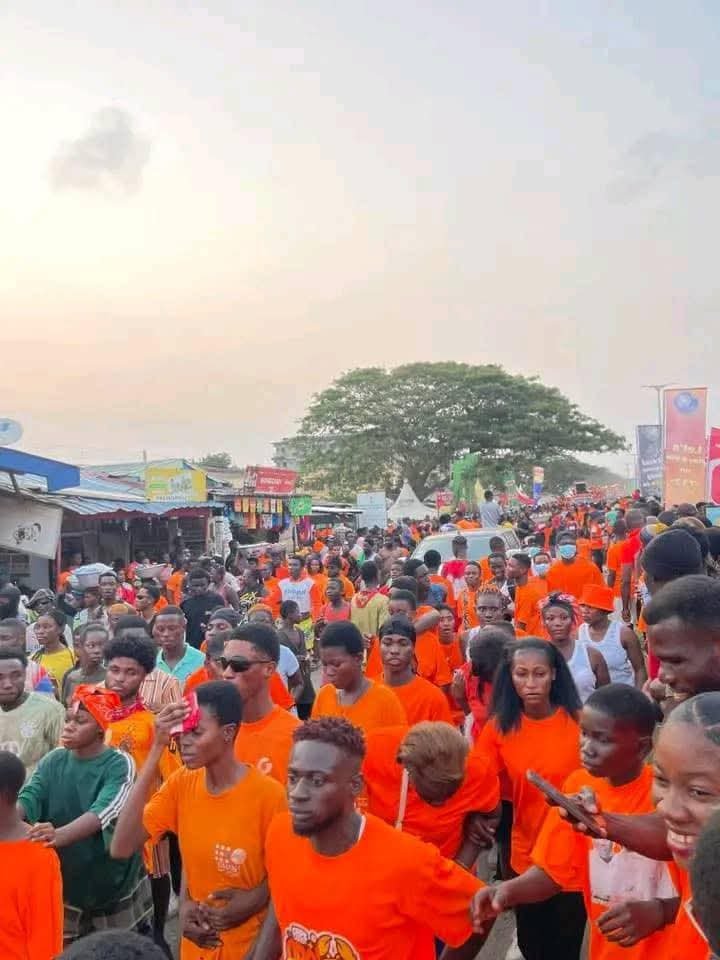
The Vice President, Prof. Naana Jane Opoku-Agyemang, in a speech read on her behalf, noted that the festival was far more than a ritual or an annual duty, saying, “It is an affirmation of an identity, a homecoming and a powerful testimony to the wisdom and fortitude of our forebears”.
In his remarks, the Special Guest of Honour, the Olu of Warri State in Nigeria, Ogiame Atuwatse III, indicated that, the only thing holding Africans back was Africans themselves, which he said, was in the area of an African identity, and acting on that identity.
From David O. Yarboi-Tetteh, Cape Coast
Join our WhatsApp Channel now!
https://whatsapp.com/channel/0029VbBElzjInlqHhl1aTU27
News
Chief Imam issues disclaimer on unauthorised petitions
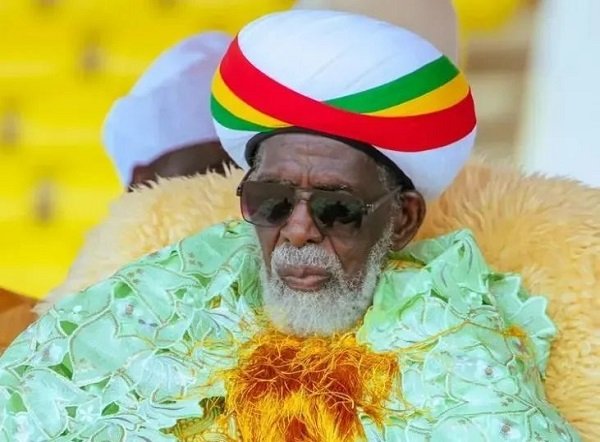
The Office of the National Chief Imam has warned Muslim organizations and individuals against issuing statements and petitions to the Government in his name without permission.
In a statement, the Chief Imam said he had observed that some groups had been circulating petitions, including a recent one on Hajj, using his name without authorization.
He stressed that such actions were unlawful and cautioned those involved to stop or face the law.
The Chief Imam reminded the public that on October 4, 2022, he, together with the National Imams of all Muslim sects, signed a deed and presented it to the Government at the Jubilee House.
The agreement recognised the National Muslim Conference of Ghana as the official body representing Muslims in their dealings with state institutions.
He urged that any petitions meant to be sent to the Government in his name should go through the National Muslim Conference of Ghana with the approval of the Advisory Board of his office.
By: Jacob Aggrey








